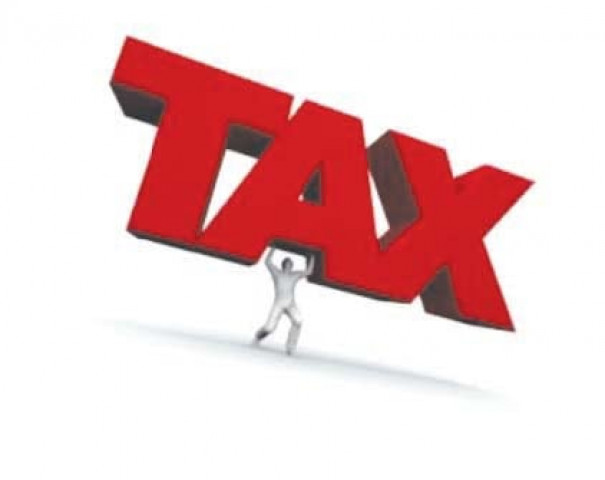New tax chief promises to name and shame
To instil frisson of fear in biggest dodgers, Ali Arshad Hakeem is threatening to freeze assets, ban them from travel.

Pakistan's new tax chief is determined to force a jet-setting elite to pay their fair share, challenging an unspoken consensus among politicians and businessman that writing cheques to the government is strictly optional.
Less than 1% of Pakistan's 180 million citizens pay income tax and no one is believed to have been prosecuted for tax evasion in 25 years, to the dismay of Western allies who have contributed billions of dollars in aid.
"We will name and shame," said Hakeem, in his office which overlooks mansions with security guards that belong to members of the privileged class he has vowed to target.
Freezing assets
Hakeem, 49, believes he can inculcate a greater sense of responsibility in the top layer of society through a carrot and stick approach.
To instil a frisson of fear in the biggest dodgers, he is threatening to freeze assets and ban them from travel.
But he is also about to offer a 10-week amnesty that forgives past offenses and only places a small tax burden in the first two years of those who choose to accept.
The scheme is the best Hakeem can come up with given the government's failure to muster the political will to implement key economic reforms, including widening the tax base.
Pakistan's Western allies say boosting revenues to forge a more meaningful social contract between the government and its people is just as critical for stability as military campaigns against insurgents.
To tempt them into the programme, tax cheats will only need to pay a flat fee of around Rs40,000 for any amount of income they bring in over the next year. The following year, they will have to pay $40 more in taxes.
At the end of the second year, the tax rate will be re-evaluated and could return to normal rates, which run as high as 25%.
The National Database and Registration Authority (NADRA) has profiled more than 2 million offenders, detailing their luxury cars and houses, bank accounts and overseas trips.
Hakeem, the tall, grey-haired head of the Federal Board of Revenue, says he will release the names of offenders to the media.
"It's like a war," he said, displaying the profiles of offenders with their faces and names obscured. Foreign accounts, vehicles, trips and properties are listed.
"If this fails, I have to go."
Some say Hakeem has embarked on mission impossible. Previous government amnesties have been criticised as rewarding tax evaders and punishing honest citizens without doing anything to broaden tax collection.
Deep inequalities
But if Hakeem somehow beats the odds, his campaign could help ease Pakistan's deep social inequalities.
The wealthy attend lavish dinner parties, drive luxury four-wheel-drive vehicles and vacation in the West during the blistering summer heat while millions of poor Pakistanis brave chronic power outages in slums or impoverished villages.
One in five people live below the international poverty line of $1 a day.
"We'll eventually get each one of them. We must give people a chance to come and pay their taxes," said Hakeem.
"It's a computerised system ... We even know what colour shirt he (an offender) was wearing when he got on that flight."
Hakeem says evaders may have their identity cards suspended, although it's not clear if such action is legal. The cards are required for travel, banking and to validate any license.
The amount of tax collected has been going down in real terms even as the country looks to the West for help.
Britain has pledged to pay $1 billion over five years to upgrade Pakistan's schools. The US is giving Pakistan's powerful army more than $1 billion this year to help fight the Taliban. The country also owes the International Monetary Fund $7 billion.
Hakeem's organisation has already presented some famous Pakistani cricketers, such as former captains Younus Khan and Shahid Afridi, with a whopping tax bill.
But there have been no public demands for wealthy politicians or their millionaire backers to pay up.
History shows that Hakeem faces an uphill battle.
Businessman Jehangir Tareen said when he was serving as a lawmaker, it took him a year to get tax authorities to accept his payment because they were so afraid of setting a precedent for taking cash from the powerful.
"We filed a (tax return) and sent a cheque. They returned it and said, 'please don't do this'," he said. "People who pay tax honestly do not get rewarded."
That year Tareen, a passionate advocate of tax reform, was the only one of 269 federal lawmakers to declare how much tax he paid.



















COMMENTS
Comments are moderated and generally will be posted if they are on-topic and not abusive.
For more information, please see our Comments FAQ